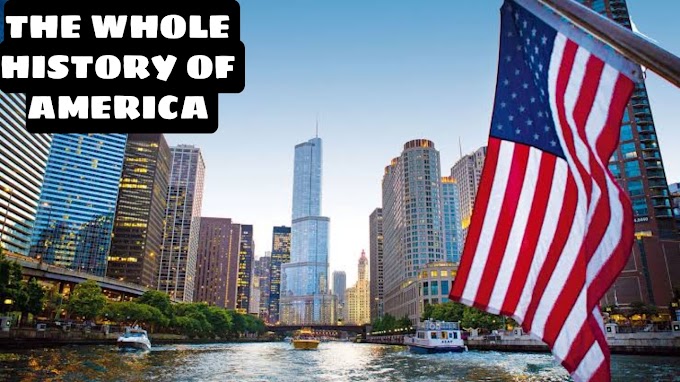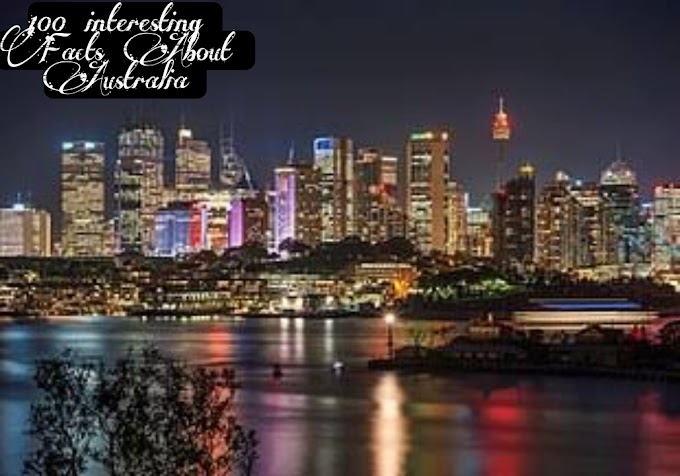THE WHOLE HISTORY OF BELGIUM
Hello Guys:
Welcome to countries Facts so today in this Article I will show you the whole history land of brave Belgium is well known for its chocolates beers and famous comic franchises like Smurfs and The Adventures of 10/10 but the history of this country dates all the way back to the 3rd century BC have you ever wondered how the countries that exist today have evolved what happened to them through the course of time and how they happened to be the way they are now what's up guys this is gray and in this episode of from years two minutes we will briefly look at the history of Belgium if you knew this channel make sure you give us a thumbs up subscribe and hit that Bell icon so you don't miss another video [Music] [Music] Gaul was a historical region of Western Europe during the Iron Age that was inhabited by Celtic tribes encompassing present-day France Luxembourg Belgium most of Switzerland parts of northern Italy as well as parts of the Netherlands and Germany on the west bank of the Rhine according to the testimony of julius kaiser Gaul is divided into three parts Galia kaltaka bélgica and Aquitania it is believed that Belgium derives its name from the Belgae tribes which lived in the northern part of what was then Gaul are in the 3rd century BC but what does Belgae stand for and why do these tribes come from according to linguistic experts the name has its roots from the proto Celtic words belg and bulk which means to swell with anger of all the tribes in Gaul they were described as being the bravest of them all and this belief was supported by the fact that they were the hardest to conquer Keizer faced strong resistance and it took him four years until he finally conquered the belgae tribes in 53 BC moreover during Roman times Belges could not accept the fact that their lands were part of the empire in revolted their leader Ambiorix was in charge of a revolt but was eventually defeated after the fall of the Roman Empire in the beginning of the Middle Ages the territories which presently form Belgium became part of the Holy Roman Empire and would remain as such until the 11th and 12th centuries the influence and control of the Holy Roman Empire over these territories would gradually decrease over the centuries as a result these lands were left isolated and the lack of protection was a good opportunity for the English and French to take control of the region in the 12th century Belgium was partitioned into the duchies upper bond and Luxembourg the bishopric of Laish and the domain of the count of Hainan which included Flanders in the 15th century most of the Low Countries currently the Netherlands Belgium and Luxembourg passed to the Duchy of Burgundy and were subsequently inherited by emperor charles v when the latter abdicated in 1555 the territories went to his son Philip the second king of Spain while the northern part now the Netherlands gained its independence in the following decades the southern part remained under Spanish control until 1713 when it was transferred to Austria during the wars that followed the French Revolution Belgium was occupied in later annexed to France the year 1815 was not without significant importance following Napoleon's defeat in Waterloo the powers of Britain Austria Prussia and Russia met in Vienna to redistribute influence and negotiate the jurisdiction of territories for years to count one of the most significant decisions was the creation of the United Kingdom of the Netherlands the main idea was to create a state which would serve as a buffer Territory against any future French intervention during the Vienna Congress the creation of a Belgian state was suggested but this option did not get enough support instead it was decided that territories which were once part of France should be now attached to the United Kingdom of the Netherlands on the 25th of August 1830 the Dutch king Willem the first was celebrating the fifteenth year of his reign as part of his celebrations he attended the arbors Opera LaMotta that party at the Brussels Opera House interestingly the same opera influenced nationalist movements during the revolution in France which took place a month earlier with many patriotic disturbances it was for this reason that the Opera was initially banned but subsequently lifted for its premiere on the 25th of August during the performance there were many patriotic posters inside the Opera that called for revolution from the moment when the second act began with the duet amour sacre de la patrie an uprising began among the attendees and the revolt quickly moved to the streets of Brussels the inspiration for revolution began to pick up pace in other cities and the people's demands were simple independence and an end to the Dutch dominance the Belgian revolution was a moment which was not only of huge importance for Belgium but it also shaped the rest of Europe and created a new country following these events the great powers from the Vienna Congress gathered once again in London on December 20th 1830 this time they had no choice but to recognize the success of the Belgian revolution and to guarantee its independence however the powers insisted that the future king should come from the saxe-coburg dynasty why was that while the reasons simple avoid any French interests in the future Belgian territories that is why Leopold the first of saxe-coburg was invited to become the first king of Belgium and his inauguration was on July 21st 1831 the date of his inauguration became the National Day of Belgium since then the Dutch and french-speaking communities have their own country and King and sealed the year 1831 as the true beginning of modern-day Belgium most of society was highly traditional especial small villages and rural areas and the quality of education was low few people expected that Belgium seemingly a sluggish and culturally dormant bastion of traditionalism would leap to the forefront of the Industrial Revolution on the continent nevertheless Belgium was the second country after Britain in which the Industrial Revolution took place it developed into an open economy focused on industrial exports with strong ties between the banking sector in the basic industry Belgium set the pace for all of continental Europe while leaving the Netherlands behind as international tensions heightened during the summer of 1914 Germany made plans to beseech France by crossing Luxembourg and Belgium despite their neutrality the two countries refused free passage to the German troops and were invaded on August 2nd and August 4th respectively the Belgian Army retired behind the Iron River and the west of Flanders and held his position until 1918 the Treaty of Versailles in 1919 ending World War one abolished Belgium's obligatory neutrality and returned the Canton's of upin and Malmedy to its territory in 1920 a Treaty of military assistance was signed to France in 1921 an economic union was concluded with Luxembourg that tied the currencies of Belgium and Luxembourg together Belgium's eastern frontier was guaranteed by the pact of the Sarno in 1925 the Belgian economy of the interwar period faced serious difficulties the war had caused a loss of 16 to 20 percent of the national wealth not only were parts of the country seriously damaged by combat but the Germans had largely dismantled the Walloon heavy industry moreover many Belgian investors had lost their capital in Russia which had been transformed by a revolution into the Soviet Union reconstruction proved difficult for other reasons as well Germany was delinquent and inadequate in its payments of war reparations mandated by the Treaty of Versailles German forces again invaded the country in May of 1940 and 40,000 690 Belgians over half of them Jews were killed during the subsequent occupation of the Holocaust from September 1944 to February 1945 the Allies liberated Belgium after World War two a general strike forced King Leopold the third to abdicate in 1951 since many Belgians felt that he had collaborated with Germany during the war the Belgian Congo gained pendants in 1960 during the Congo crisis Rwanda R&D followed with its independence two years later Belgium joined NATO as a founding member and formed the Benelux group of Nations with the Netherlands and Luxembourg because of a limited extent of its war-damaged estimated at only 8% of the national wealth and the implementation of vigorous government policy Belgium experienced a remarkable economic resurgence in the early post-war years Belgium became one of the six founding members of the European Coal and Steel community in 1951 and of the European atomic energy community and European Economic Community established in 1957 the latter has now become the European Union for which Belgium hosts major administrations and institutions including the European Commission the Council of the European Union and committee sessions of the European Parliament linguistic and economic tensions intensified between Fleming's and Moloney ins massive strikes and Wallonia in early 1961 resulted in Parliament defining a linguistic border in 1962 through 1963 with a bilingual area around Brussels the bilingual University of Louvain was divided into a Flemish speaking campus on Flemish territory in a french-speaking campus on melodeon territory in 1969 through 1970 the Parliament gave cultural autonomy to the Flemish and Moloney in regions in 1971 and the Constitution was revised in 1980 to create an independent administration within each region extended in 1988 to 1989 to cover the economy in education this revision made the bilingual metropolitan area of Brussels a third independent region with its own administration thus Belgium changed into a federal state the st. Michael's agreement of September 1992 called for the division of Brabant into flemish brabant and Wallonia in verba King Baudouin died on July 31st 1993 to be succeeded by his brother Albert second twin its Fleming majority 58% of the population and its wallowing in minority 31% of the population and about 73,000 Germans the other 11% consisting mostly of other Europeans Turks Moroccans and Algerians Belgium operates a modern private enterprise economy and is capitalized on its central geographic location highly developed transport network and diversify an industrial and commercial base it is one of the world's 10 largest trading nations the economy is characterized by a highly productive workforce high GNP and high exports per capita the Belgian economy is heavily service-oriented the people of Belgium enjoy a high standard of living the Belgian Armed Forces have about 41,000 active troops and they are organized into one unified structure which consists of four main components the army the Air Force the Navy and the medical component thank you guys so much for watching we will see you soon in the next one Goodbye.

















